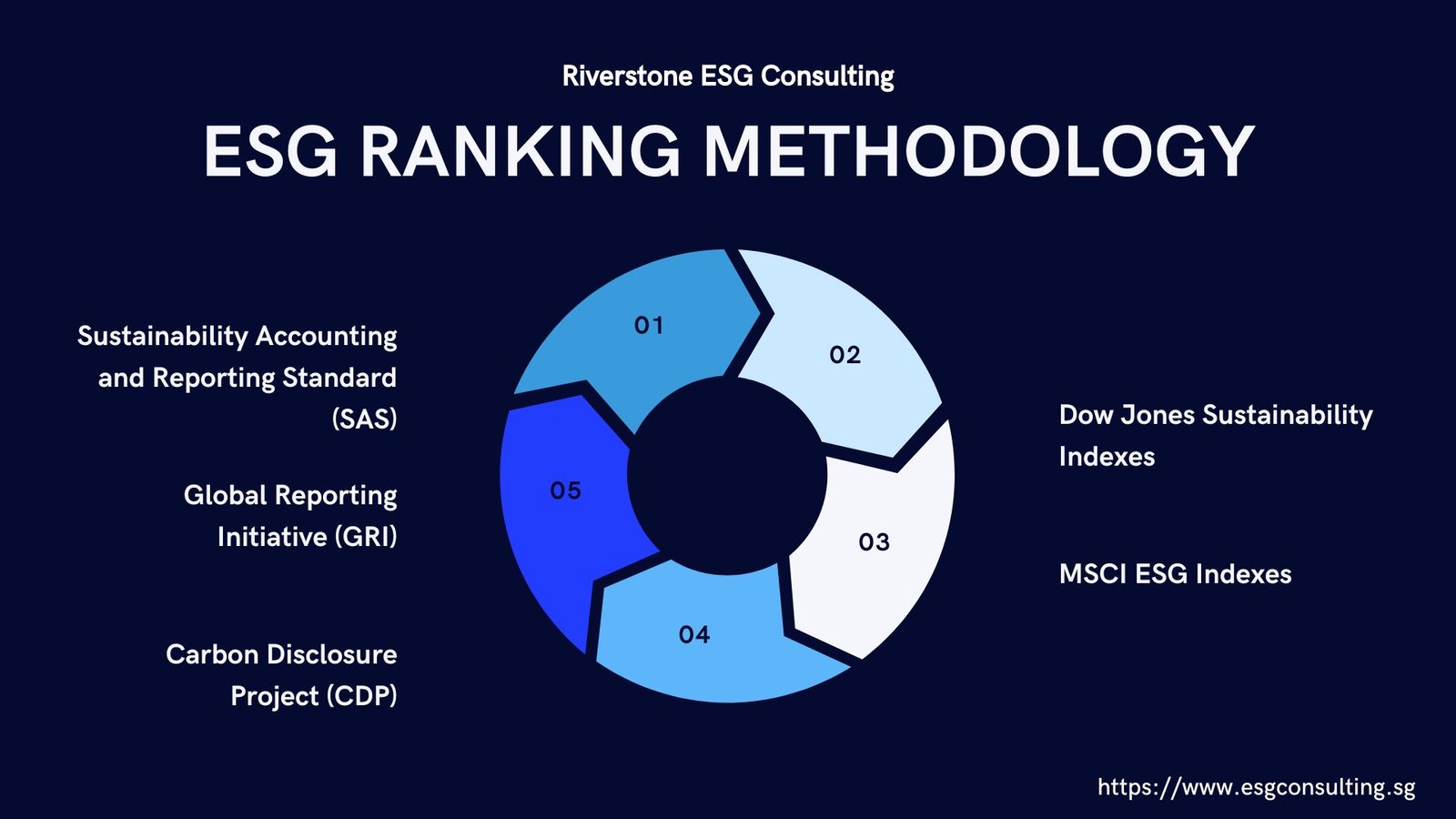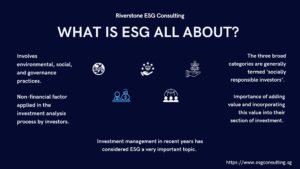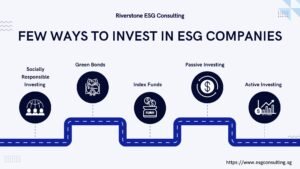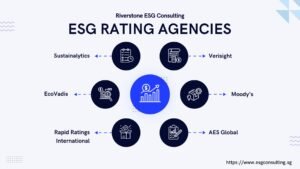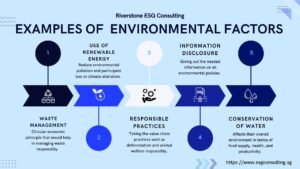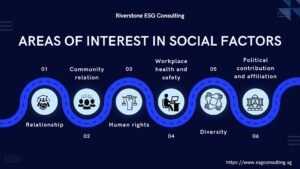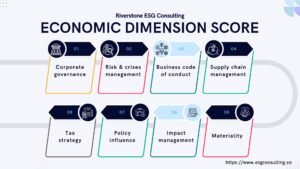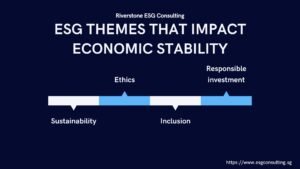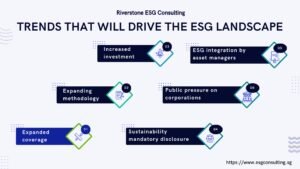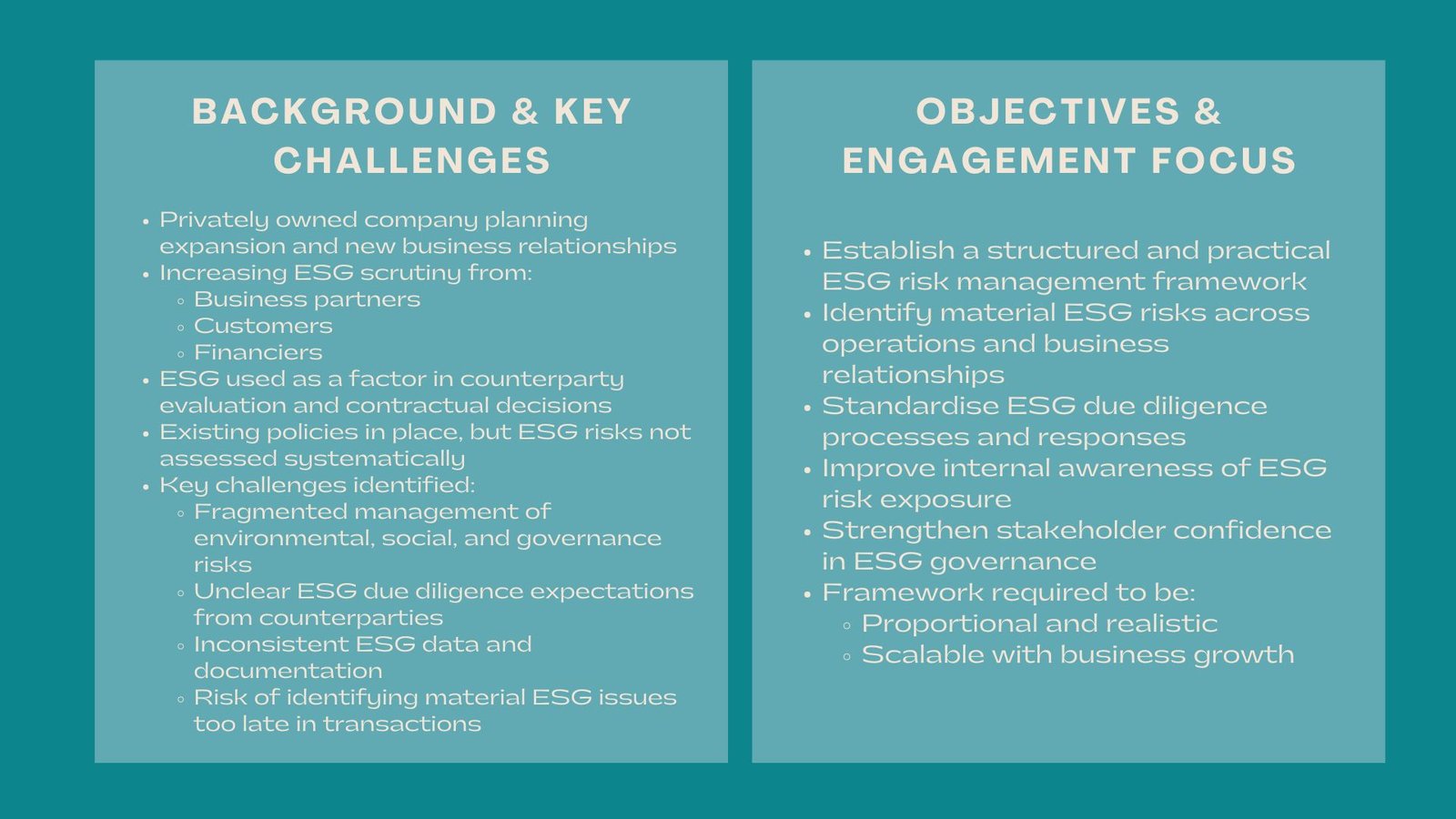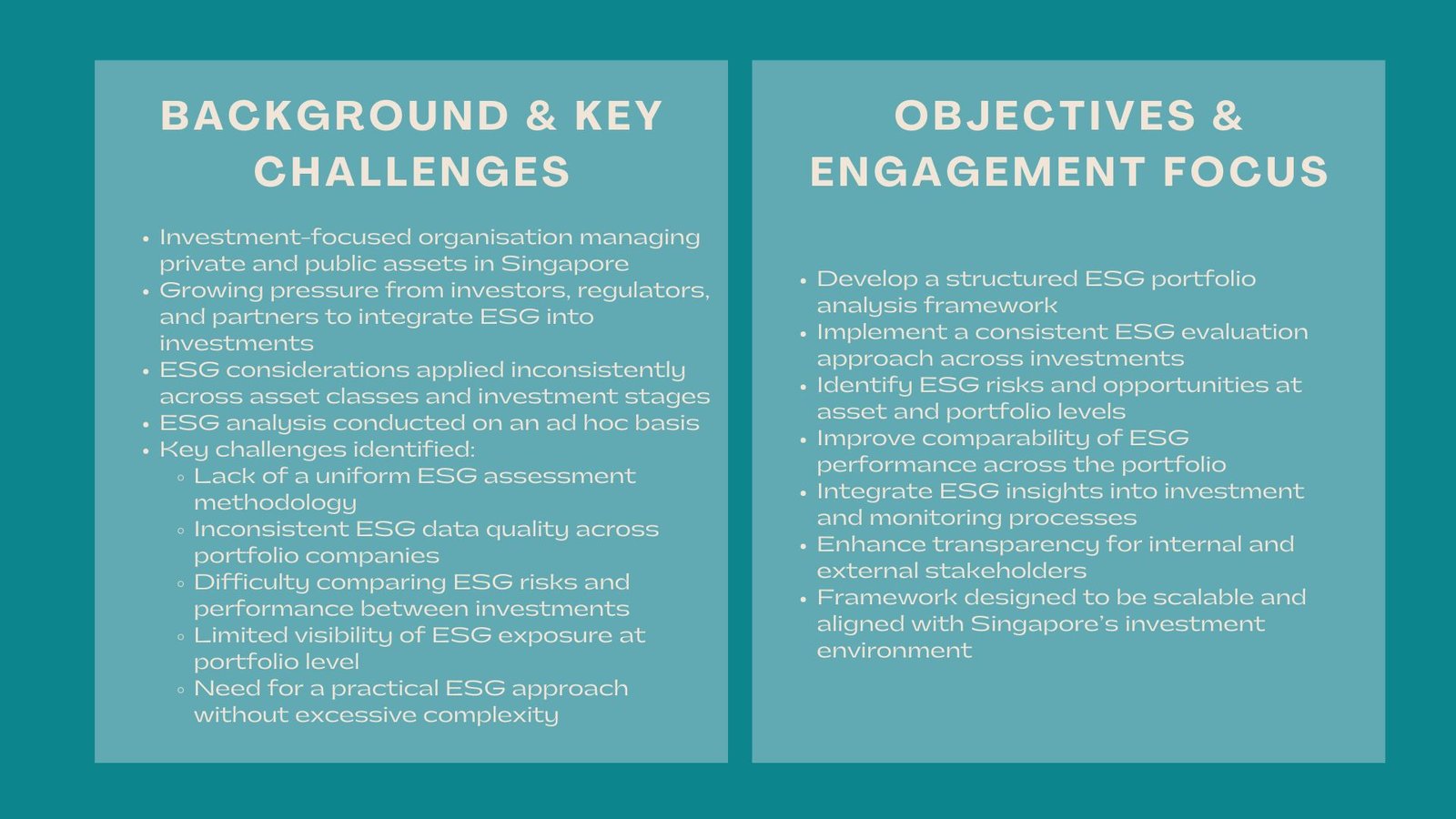The Impact of ESG themes and Factors on Investment Decisions
Decoding ESG: A Comprehensive Overview of Key Environmental, Social, and Governance Themes and the Specific Factors Influencing Investment Decisions in Singapore
- When looking at an ESG Marketplace, it is important to be aware of the different themes and factors that are considered.
- Each exchange has its focus, so it is important to do your research before investing.
Identifying Four Critical ESG Factors with Significant Impact on Economic Stability in Singapore and Their Implications for Investment Strategies
The following are the four main factors that ESG focuses on to increase economic stability.
- Environmental impact:- The first factor is to consider how environmental factors affect the growth of a company.
- Social responsibility:- The second factor is to ensure social factors do not impact growth negatively.
- Corporate governance:- The third factor is to ensure internal controls will not hinder stability, which includes consistency and transparency within the company’s decision-making process.
- Sustainable investing:- The fourth factor looks at companies with strong practices in renewable resources, clean technology, and corporate sustainability initiatives.
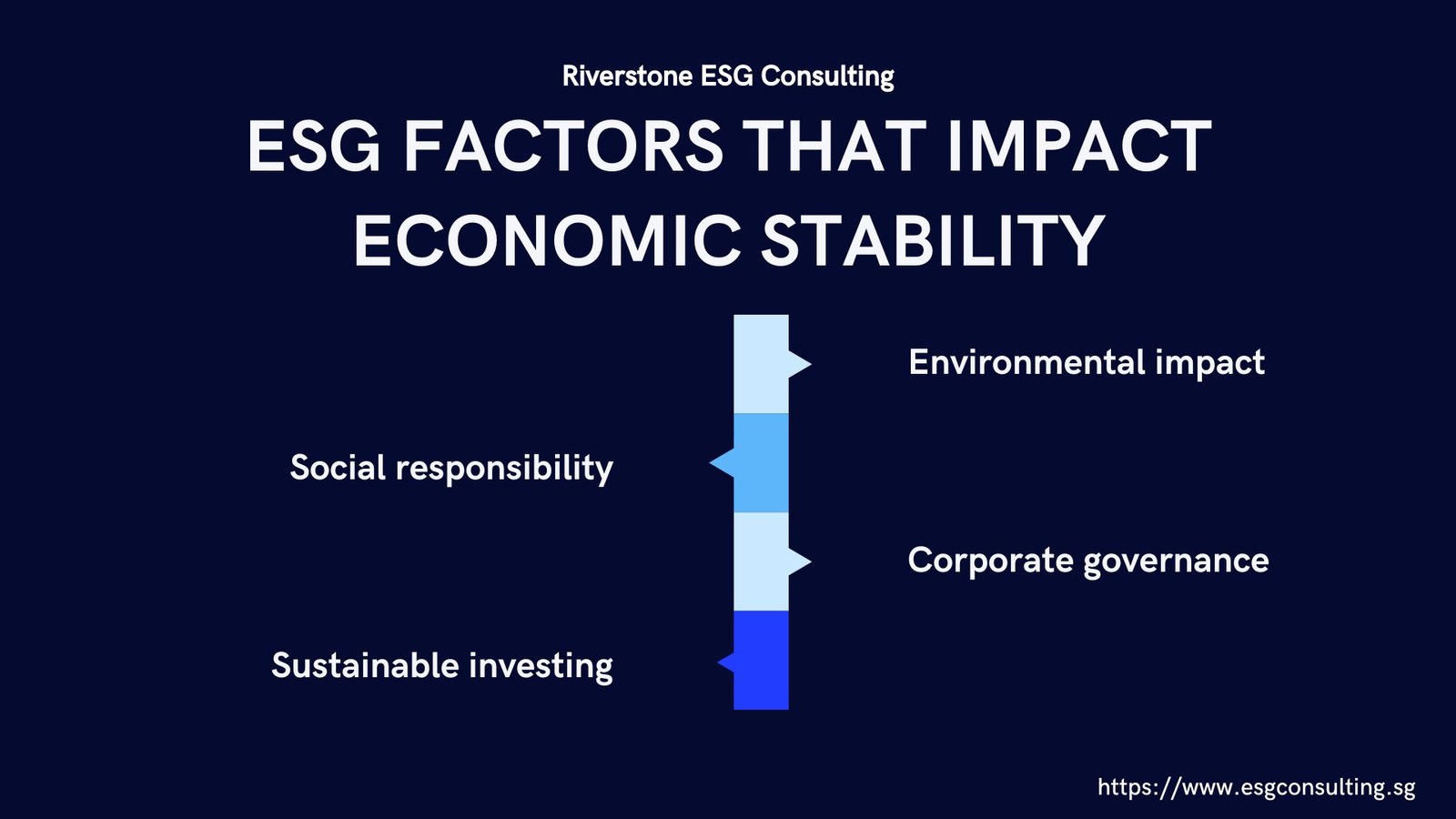
How ESG Themes Drive Economic Stability : A Focus on Four Key Environmental, Social, and Governance Themes for Investors
The following are four themes that impact economic stability.
- Sustainability:- Addressing environmental and social concerns today to ensure future economic stability.
- Ethics:- Acting with integrity and in accordance with ethical principles.
- Inclusion:- Promoting diversity and equal opportunity both within the company and among its stakeholders
- Responsible investment:- Seeking opportunities that consider environmental, social, and governance factors when making investments decisions?
How ESG Rankings Inform Investment Decisions in Singapore : A Deep Dive into the Methodologies Behind Evaluating Corporate Sustainability Performance
There are different methodologies used in different exchanges. Let explore some examples of how different exchanges rank companies according to their ESG performance.
- Sustainability Accounting and Reporting Standard (SAS):- This is used by the SASB, which is an organization that provides sustainability reporting standards for publicly traded companies in the US.
- Global Reporting Initiative (GRI):- The GRI is an international organization that develops guidelines for sustainability reporting.
- Carbon Disclosure Project (CDP):- The CDP is a global nonprofit organization that asks companies to disclose their environmental data.
- Dow Jones Sustainability Indexes:- DJSI is a stock market index provider that tracks the performance of sustainable companies.
- MSCI ESG Indexes:- MSCI is a provider of indexes and portfolio risk and performance analytics.
Impact of Environmental ESG Factors on Investment Decisions in Singapore
As the world becomes more environmentally conscious, investors in Singapore are paying close attention to how companies manage their environmental impact. Factors like carbon emissions, waste management, and energy efficiency are increasingly guiding investment choices. Companies that focus on sustainability and eco-friendly practices not only help the planet but also attract investors looking for responsible businesses. In Singapore, these green initiatives are becoming a key factor in investment decisions.
How Social ESG Themes Influence Responsible Investment in Singaporean Companies
Social issues like diversity, fair labor practices, and community engagement are gaining more importance when it comes to responsible investing in Singapore. Investors want to know that the companies they invest in treat their employees well, support local communities, and foster inclusivity. Singaporean businesses that prioritize these social values are likely to attract more ethical investments as people become more mindful of the social impacts of their financial choices.
Governance ESG Factors Affecting Foreign Direct Investment
Strong corporate governance is one of the key factors foreign investors consider when looking at Singapore. Investors want to feel confident that the companies they invest in are transparent, ethical, and well-managed. Companies with clear accountability, solid anti-corruption policies, and respect for shareholder rights tend to inspire more trust, making them more attractive for foreign investment. Singapore’s strong governance standards help create an environment that fosters confidence and investment from abroad.
Analyzing the Effect of Climate Change ESG Themes on Singapore Stock Market Investments
Climate change is a growing concern for investors, and it’s increasingly influencing stock market decisions in Singapore. Investors are drawn to companies that take climate risks seriously, whether through adopting sustainable practices or investing in green technologies. As awareness around climate change grows, sectors like renewable energy and carbon-efficient industries are becoming more attractive, creating new investment opportunities in Singapore’s stock market.
The Role of Human Rights ESG Factors in Ethical Investing
Human rights are at the forefront of ethical investing, and in Singapore, investors are increasingly looking for companies that respect human rights. This includes ensuring fair labor practices, protecting workers from exploitation, and fostering safe working conditions. Companies that uphold high standards of human rights not only do good in the world but also attract investors who prioritize ethical, socially responsible business practices.
Impact of Corporate Governance ESG Factors on Shareholder Value in Singaporean Firms
Good corporate governance is key to boosting shareholder value in Singaporean firms. When companies are transparent, accountable, and run ethically, it builds trust with investors and helps drive long-term growth. Investors are more likely to put their money into companies with strong governance, as they see it as a way to reduce risks and ensure more stable returns over time.
The Effect of Corruption ESG Themes on Investment Risk Assessment
Corruption risks are a major concern for investors, especially when evaluating businesses in Singapore. Companies with strong anti-corruption policies and a transparent approach to governance are seen as less risky. Investors are more likely to put their money into businesses that are committed to ethical practices and are less likely to face legal or reputational issues. In Singapore, a focus on anti-corruption is helping companies build trust and attract more investment.
The Growing Importance of ESG Factors in Investment Decisions: Analyzing Their Impact on Risk, Return, and Long-Term Value Creation
Here are the things to know about ESG factors in investments.
- ESG factors also impact financial performance.
-
- It is important to note that companies with strong ESG practices may see a positive correlation between their ESG and financial performance, as opposed to the negative trend associated with non-ESG companies.
- Not all indexes use the same methodology:
-
- It is important to check the credibility of your source before you invest based on rankings from an index provider since not all indices use the same grading methodologies
- Investments in renewable resources are growing rapidly:
-
- The growth of investments in sustainable resource factors has increased substantially in recent years.

